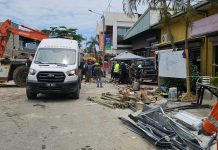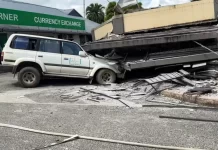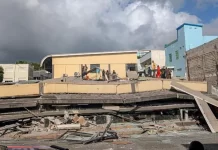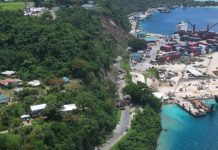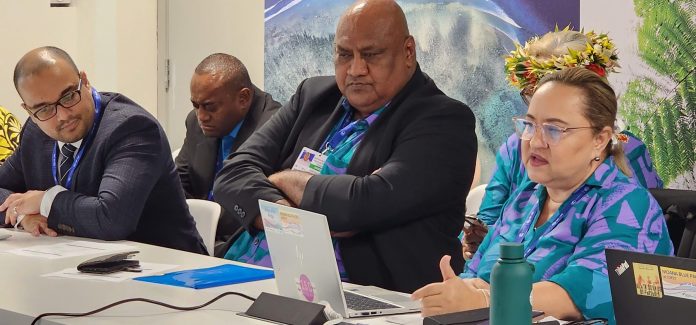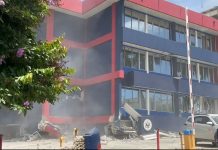By Pita Ligaiula at COP28 in Dubai, UAE
Concerns were raised about attempts by certain countries to weaken the emphasis on Small Island states (SIDS) at the COP28 climate change negotiation in Dubai.
The issue revolves around the unique circumstances of SIDS and the fear that broader inclusion might weaken their concerns in global climate negotiations.
Director General of the Secretariat of the Pacific Regional Environment Programme (SPREP), Sefanaia Nawadra, in a media briefing highlighted the historical context of SIDS.
“The special circumstances for SIDS were negotiated as part of the Rio outcome and convention that emerged from the UN process. Over time, there have been attempts to not only undermine the Pacific positions but also to include themselves as a special case.
“I call it elimination by inclusion, as it started with mountain states and expanded to landlocked countries, arguing that all developing countries should be considered special cases like SIDS,” Nawadra said.
Nawadra also pointed out the difference between developing countries and SIDS.
“Our significant argument is that unlike others, we are insignificant contributors to emissions. Some countries are larger and contribute significantly to the emissions causing the issues we are facing. Additionally, we are the first to feel the impacts of climate change,” he explained.
Nawadra acknowledged the changing landscape in climate negotiations.
“It’s becoming harder to argue about being the first to feel the impacts, as countries like Bangladesh and Pakistan also face existential threats due to the nature of their country.
“We need to remain vigilant because negotiations constantly erode our positions, attacking them in different forums.
“Sometimes we have to reinvent how we justify our position. At Rio plus 20, our focus was on the special case due to our small size, a perspective different from when it was first negotiated in Rio,” Nawadra stressed.
When asked about the possibility of considering all Pacific countries as special cases, Nawadra said “This is not something we need to argue; it’s already established.
“What we must resist is calls to include others in this category. If everyone is considered a special case, the value of the special case diminishes. We are now arguing against our own bloc to maintain our unique position, applicable to all Pacific countries and SIDS,” he said.
As the international community negotiations underway at COP28, the Pacific region emphasises the importance of preserving the special circumstances of SIDS, ensuring that their vulnerabilities and contributions to climate change are not overshadowed in the global discourse.
SOURCE: PACNEWS


